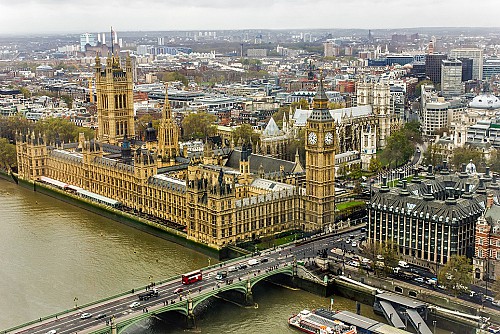The UK Tier 1 Start-up and Innovator Visas
Published at: 06/05/2019 05:17 pm

From 29 March 2019, the British government closed the applications for the previous Tier 1 Graduate Entrepreneur and Tier 1 Entrepreneur visa categories. However, they introduced new visa classes to ensure that the UK continues to attract qualifying applicants from other countries.
The main difference between the previous Entrepreneur and the new options is that now future residents of the UK must succeed during a two-stage application process. Another critical requirement is that the candidates must apply "to a relevant endorsing body" listed on their website, and it will assess their business plans. After obtaining the endorsement, the innovators should submit their immigration permission application to the Home Office. According to experts, it looks like that the applicants can only form new businesses. The previous Entrepreneur categories allowed investors to join existing projects or business activities.
The Start-up visa aims those applicants, who would like to set up a business for the first time in the UK. Successful candidates will be granted a residence permit for two years, and they can progress into the Innovator option.
The Innovator category aims the more experienced entrepreneurs, and after the successful application, they receive a residence permit for an initial three years period. After the first three years, the residents can apply for settlement. If they do not want to become permanent residents and later citizens, the residents can extend the Innovator visa for the next three years long period. The number of renewals is not limited.
Primary requisites for the UK Tier 1 Innovator Visa
- Knowledge of the English language (B2 or higher) Maintenance: Candidates must hold a deposit a minimum of 945 GBP for three months before the application date.
- Endorsement: the endorsing body will provide the support letter if the application meets all criteria:
- Innovation - genuine, competitive, and original business plan
- Viability - successful market awareness, knowledge, experience, skills
- Scalability - job creation and market growth in the UK.
Interestingly, the necessary funds decreased under the new Tier 1 UK Visa regulations. Instead of the previous 200,000 GBP investment, now the minimum amount of financing for the UK's residence permit is 50,000 GBP. Additionally, those applicants, who upgrade their status from the Start-up category may not invest more at all, if they achieved significant results.
To extend the Tier 1 Innovator visa, the resident must successfully apply again, must prove that the project goes well according to the business plan and the endorsement body must issue a new letter. For the settlement, there are stricter requisites. The Tier 1 Innovator visa holder must fulfil two criteria of several indicators, which can prove the success of the venture.
For example, the business can create jobs, generate a minimum annual gross revenue of one million pounds. Or can attract an increasing number of clients, invest more than the minimum 50,000 GBP limit. Moreover, the resident must pass the "Life in the UK Test". The physical residence requirement means that the resident can't stay more than 180 days in other countries per year during the three years of the UK Tier 1 Innovator Visa.
Summarising the new residency by investment programme of the United Kingdom, the most critical development is the decreased amount of investment from 200,000 to 50,000 GBP. Another important issue that the business does not have to create jobs; it was a strict requirement under the previous Tier 1 Entrepreneur option.
The applicants can start their process from 20 September 2019. Discus Holdings Ltd is an expert of the United Kingdom's immigration programs. Ask for a free consultation here to obtain all the necessary information about your business and immigration process in the United Kingdom!
